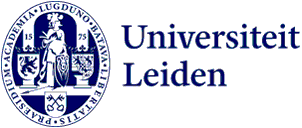
‘Don’t assess academic CVs on autopilot’
Hiring academics is more than just tallying up publications, says academic director and history professor Jeroen Duindam. He and his colleagues have come up with tips and guidelines for interview committees that align with the new system of recognition and rewards.

Hi Jeroen, how did the idea for these guidelines for hiring new colleagues come about?
‘From an unusual situation, with no fewer than eight assistant professor vacancies. We thought: shouldn’t we take advantage of this in a number of ways? Because anyone who has ever had to read piles of academic CVs will know: you switch on a kind of calculator in your head. And if you assess CVs on autopilot, it is blindingly obvious who will get through the selection. This time we wanted to discuss this with everyone before the process began.’
By ‘everyone’ do you mean the members of selection committees?
‘Yes, but not just them. Because you also want members of the groups where people will end up working to discuss what they need − before you get your hands on that pile of CVs. So we drew up guidelines, a document with suggestions and points to consider: what to think of before the first selection, what to ask during the interviews and what tasks to give applicants.’
‘Discuss what you need − before you get your hands on that pile of CVs’
What criteria can you use to evaluate candidates, apart from whether they are good researchers or lecturers?
‘For example, think beforehand about diversity and the gender balance in your group and how you would like it to be. And about what the team needs. Some teams may be the epitome of teamwork and collegiality, so if you want to bring in a publication champion, that’s totally fine. But other groups may need a bit more social cement: collegial people who can forge connections.’
‘Evaluating’ whether someone is collegial sounds a bit tricky.
‘It is. You often end up with terribly run-of-the-mill questions that lead to bland answers. One of our suggestions was therefore to mention the new starters grants and ask what people would do with that extra pot of money. Some applicants will make individual plans whereas others will think about how they could start something together with colleagues. And a stellar individual story isn’t bad, of course, but it does show how that person positions themself.’
What has this approach achieved?
‘An international group of new colleagues, the majority women, with a completely different background in terms of origin and language from most of our staff members. You never know to what extent our approach has really made a difference, but for now, we are really pleased. Everyone was immediately on board when we suggested doing it this way. I think it shows how it works if you take your policy seriously but don’t have to force anything in the implementation because it automatically aligns with what people themselves want.’
‘A new approach will only work if you get people on board with your plans’
You talk about ‘taking policy seriously’. Do you mean that choices should also have consequences?
‘Yes, a lot of new policy comes from the very best of intentions but before you announce it, I think it is important to think carefully about what you can actually make happen. To give an example: a bottleneck in the entire academic system, and definitely in the faculties with lots of students like Humanities, is that there is no proper basis for promotions. We do have a policy for associate professor promotions but just can’t afford them in sufficient numbers. As an academic director I have to explain things like that all the time. And many people understand but there is also a new generation that says: “But I keep hearing all about new forms of recognition, so why don’t you do that?” What also causes scepticism is that in the Netherlands the right to supervise PhD candidates is still limited to professors and a handful of others. That is an unreasonable situation that I neither want nor am able to explain.’
So Recognition and Rewards is still a case of striking a balance between dream and reality. What is your advice to your colleagues?
‘It’s important to remember that each faculty is completely different. The model of the natural sciences is now often generalised to the rest of the university, when there needs to be more of a customised approach. And it remains important to think about how you get people to buy into your policies and to let them make their own choices in the process. That, I think, if we return to the main subject of this interview, is also kind of how we’ve done it with our job vacancies. A new approach will only work if you get people on board with your plans.’
Would you like to know more about the guideline developed by the Faculty of Humanities? Please contact MT secretary Inge Ligtvoet.
Recognition and Rewards at Leiden University
The search for new ways to recognise and reward employees is happening not only within the Faculty of Humanities but across our university. At the heart of this movement is Academia in Motion (AiM). Within this programme we are working towards a university community that is focused on collaboration, and which develops and shares more knowledge throughout the teaching and research process. The five-year AiM programme gives ample space to faculties and staff to shape open science, and recognition and rewards - and to set up initiatives appropriate to their own contexts.
Want to get involved? Contact the AiM group in your own faculty or email the AiM team: academiainmotion@bb.leidenuniv.nl.
